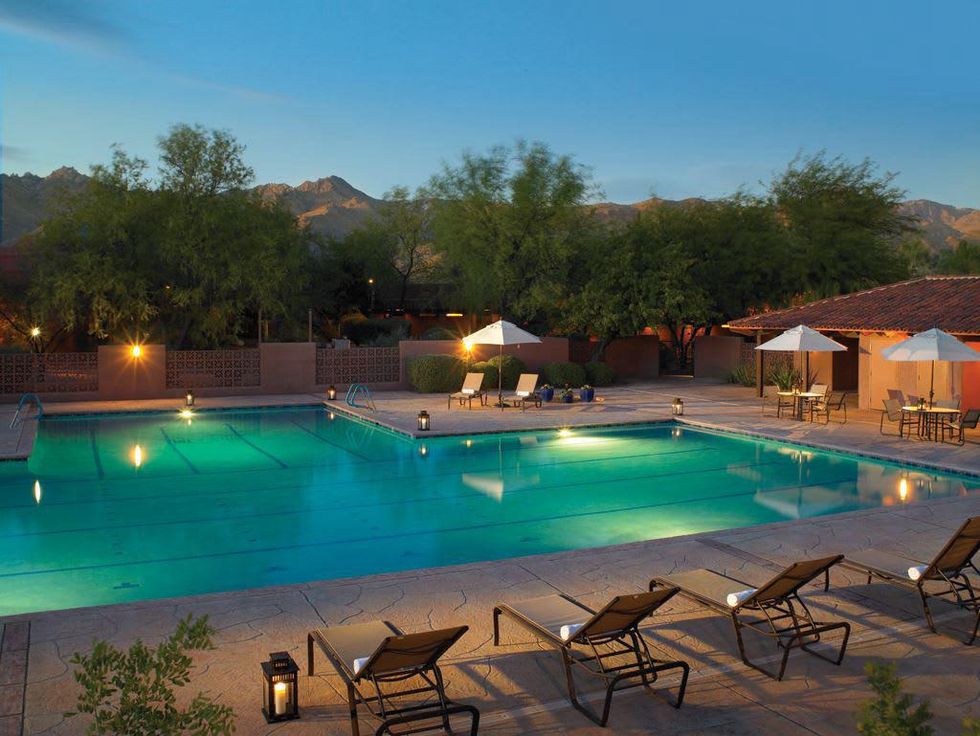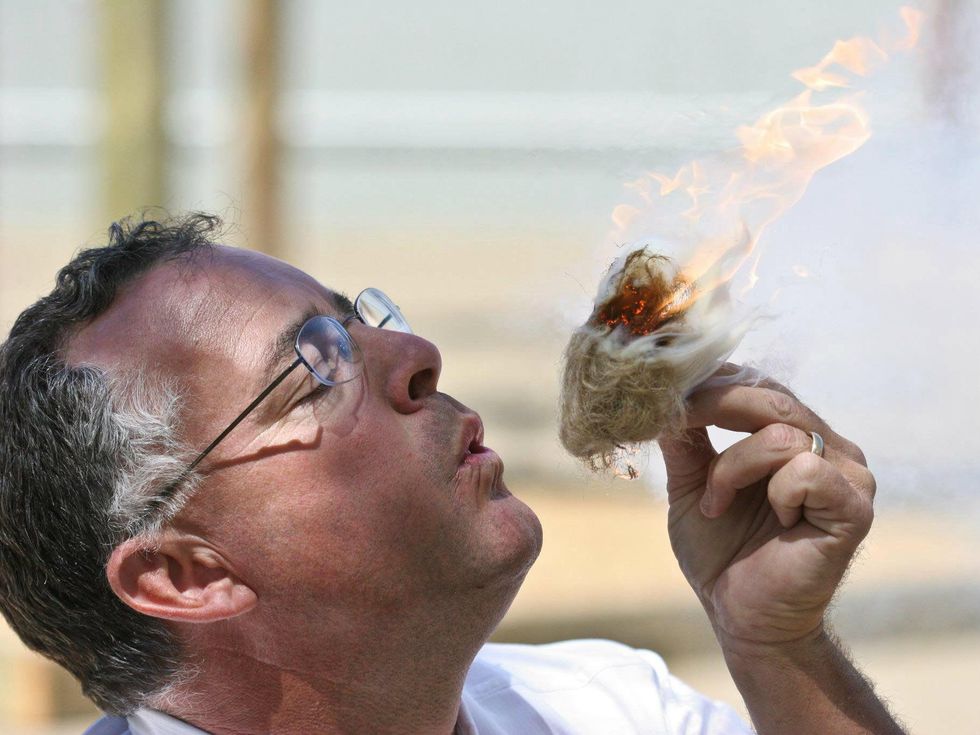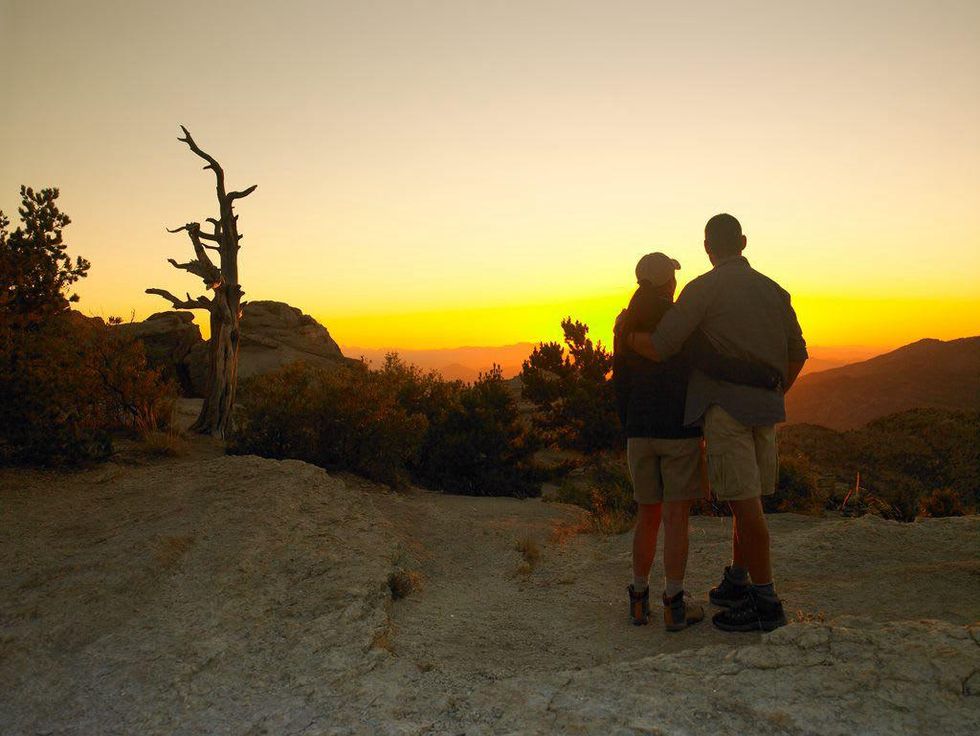Survival Skills and Spa Time
Learn how to survive the apocalypse while sitting in the lap of luxury
It pays to be prepared, whether you want to survive getting lost in the woods, the next hurricane or a zombie apocalypse. Stockpiling food and water is a start, but surviving long-term takes primitive skills, the kind our ancestors had: making a knife, starting fire and making sure zombies — or bears — don’t catch you.
Statistically speaking, knowing some basic skills and keeping a clear head can be the difference between life and death.
Although most options for learning basic survival skills involve some hardcore roughing it, I wanted another option. A few times a year, Canyon Ranch, a luxury wellness resort in Tucson, Arizona, adds a primitive outdoor skills package (the next one is October 8-11, 2013) to its usual roster of activities such as yoga, fitness, cooking and art classes.
Canyon Ranch always offers fire-building and native awareness classes, but the primitive outdoor skills package teaches you all of the things to get you ready for the apocalypse —or just a long camping trip. The course, conducted in the desert surrounding Canyon Ranch, is led by instructor Randy Kinkade, who also teaches an “outdoor skills with nothing” course at a local college and serves on search-and-rescue tracking teams.
Day 1
The first morning begins with a session on making a Hoko-style knife from stone, sticks and yucca-fiber string. We start by learning how to flake off a piece of obsidian, which creates an oddly beautiful pile of chips on the ground.
We split the end of a stick for a handle, beat yucca leaves to extract fibers, and then use a two-strand wrap method to turn those fibers into a string. Assemble, and you have a blade with many uses.
For the rest of the day, I make my own schedule. I join a drumming circle, which turns out to be a lot of fun and a surprisingly good upper-body workout. At lunch, I request the captain’s table.
Plenty of people come to Canyon Ranch alone — to get fit, deal with a health issue or just pamper themselves — so the restaurant sets several large tables where those folks can gather and share conversation. I do this several times during my stay and find my dinner companions to be an interesting and agreeable lot.
In the afternoon, I walk a trail around the resort and explore the property, stumbling across a group of mariachi statues that bursts into song when someone walks by. After dinner, I splurge on a spa treatment.
Day 2
The next morning class covers tracking and observational skills. Kinkade uses these same skills during search and rescue missions to track down lost hikers, but they're also helpful in finding your way back to camp.
We have a brief introduction to the surprisingly efficient method of hunting with sticks, which includes learning to walk silently, because tromping through the brush seldom equals hunting success. I think this skill will come in handy when sneaking up on, er, checking on my kids.
My other activities include Lunch & Learn, a combination lunch and cooking class, a few hours by the pool, and, because I’m a huge hiking fan, a guided hike on one of more than 50 trails in the nearby Santa Catalina Mountains. The resort provides guides, transportation to the trailhead, packs, water, and a meal or snack.
You can choose your own adventure, with hikes from three to more than 20 miles in length, at elevations starting around 2,000 to more than 9,000, and at all levels of difficulty. Private hikes and bike rides are booked for a fee.
Day 3
Primitive fire-making proves the most difficult skill, but it’s also the most likely to come in handy. Kinkade teaches the bow and drill method, using a stringed bow to twist a drill stick against a notched fireboard.
Sufficient friction — which does take stamina — creates a coal, which when tamped carefully into tinder and blown on, bursts into flames. The process takes care and time; I feel a bit like dancing once my tinder smokes and bursts into flames.
I reward my success with another spa treatment; pool time; and an evening spent stargazing with astronomer Michal Terenzoni, operator of the University of Arizona’s 90-inch telescope at Kitt Peak. He walks us off the well-lit resort property into a darker area where a cluster of telescopes awaits. Arizona was the first place I ever saw the rings of Saturn, and this night’s viewing is no less impressive.
Day 4
On the last day, we participants tackle a final test as a team. Without giving away any details, let’s just say we need every minute of the allotted two hours. A helpful hint: When Kinkade says make sure your fire-building tinder is fibrous and fluffy, he means it. Luckily, no one gets voted out here.
It isn't just survival skills that are useful only in an apocalypse or the wilderness, it's a survivor’s frame of mind. Awareness, thinking though the situation, flexibility, being resourceful also serves those of us facing a crisis — financial, emotional or otherwise— right here in the middle of the city.



